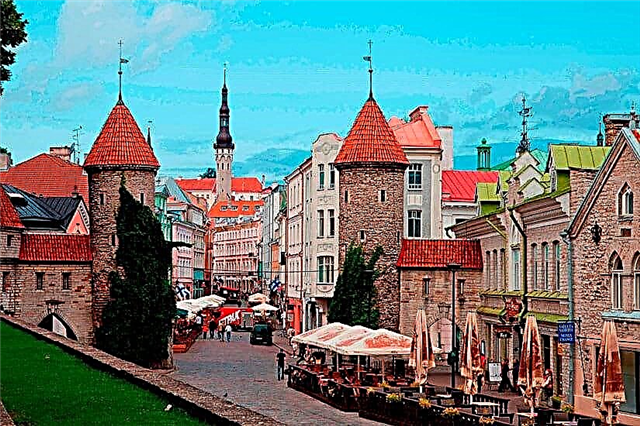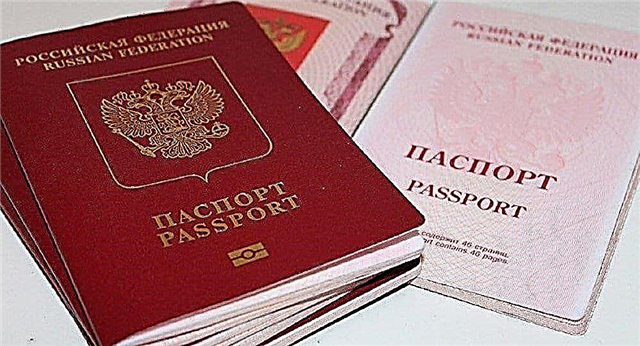From a legal point of view, a marriage with a Finnish citizen can be concluded in any country in the world, including Russia. But many see this as an opportunity for legal migration to this northern European country, therefore it is reasonable to marry all the same on the territory of Finland. In this case, the procedure will be subject to Finnish law, but with some peculiarities. What documents will be required, in what order and authority does the registration take place, what features await a spouse from Russia?

Family in Finnish
In Finland, the concept of “family” is narrower than in most other countries. Family members are usually recognized as:
- spouses who are officially married;
- spouses in cohabitation (“civil” marriage (avoliitto) is recognized by Finnish law, but does not entail most of the consequences of a formal marriage);
- underage single children living with parents or guardians;
- “Rainbow couples” (sateenkaariperhe) who enter into same-sex marriage, which are legalized in Finland (they can adopt children, including through “internal” adoption).
In the understanding of the Finnish legislator, a family is considered to be the “main family,” that is, parents and children. If, for example, grandparents live with them, they are not considered members of this family and form another.
Family members permanently living together create a "private farm". Within the framework of the family, they fulfill the obligations of mutual maintenance: the parents support the children, and the spouses support each other. There is no obligation to financially support other relatives in Finland - they can only count on social benefits.
Basic documents and conditions of marriage
Chapter 2 of Law No. 234 of 06/13/1929 "On Marriage" (Avioliittolaki) establishes the main obstacles to marriage. The list is standard:
- minority;
- the intention to conclude a marriage without dissolving the previous one;
- the intention to marry a close relative.
According to § 10 of Act No. 234, the absence of such obstacles must be proved, for which the local magistrate conducts a special study (esteiden tutkiminen), on the basis of which he issues a document confirming the right to hold a wedding.
The check for the absence of barriers to marriage is carried out in accordance with Finnish law, by requesting information from the population register. If there is no information about a foreigner in it, he must request a certificate confirming the absence of such obstacles (including information about marital status) issued in his home country (the certificate must be no older than 4 months). For Russians, it can be obtained from the Russian consulate in Helsinki.
In addition to the certificate, you will need an original identity card with a visa stamp and a certified copy. Both documents must be translated into Finnish and the certificate must be apostilled.
Change of surname in marriage
As a general rule, unless the spouses declare otherwise, each of them retains a premarital surname (§8 of Law No. 694 of 09/08/1985). However, when marrying a Finn, a Russian citizen has the right to take the surname of her spouse, just as the Finnish spouse has the right to take a Russian surname.
You can form a double surname, but only one spouse can get it - you cannot take it for general use. As a common name, spouses can also form a new surname. In any event, the registering authority must inquire before the ceremony whether the spouses share a common surname.
A person wishing to change their surname after marriage must submit a name change application (Nimenmuutoshakemus) to the magistrate. If both spouses change their surname, they both submit such applications.
As a result of the change of surname, a Russian citizen will have to replace the Russian passport (both domestic and foreign). It is possible to exchange an internal passport only on the territory of the Russian Federation (in the territorial division of the Main Directorate of Internal Affairs of the Ministry of Internal Affairs at the place of residence or place of stay, actual residence), and without replacing it, it will not be possible to change the foreign passport either.
Marriage registration procedure
Immediately, we note: for the validity of a marriage in Finland, it is not at all necessary to conclude it on Finnish territory. This can be, for example, a marriage contracted in Russia - for its recognition in the local magistrate, it must be registered. To do this, it is enough to submit an apostilled marriage registration certificate in the Russian registry office and its notarized translation into Finnish. The information from the certificate will be entered in the population register, after which the marriage will be recognized.

If the wedding takes place in Finland, the spouses can choose one of the following marriage options:
- official civil marriage union;
- church marriage union.
Both of these procedures have their own characteristics, which we propose to dwell on in more detail.
Civil registration of marriage (official marriage)
According to § 17a of Act No. 234, the following persons have the right to register an official marriage:
- the head, registrar or notary of the local magistrate (contact information for magistrates offices can be found here);
- the chairman of the district court or the district judge (the contacts of the district courts can be found here).
For this, the future husband and wife submit an application for registration in advance. The deadline within which they must apply is 7 days (7 days before). The ceremony is scheduled for any date after this period, chosen by the spouses, if it is free.
If it is a regular ceremony at the magistrate's office during his working hours, according to § 17c of Act No. 234, it is free of charge. A separate fee may be charged for holding the ceremony outside opening hours or, for example, if it is an outdoor ceremony (at home, in a restaurant, etc.).
The presence of two witnesses at least 15 years old is required at the ceremony. The marriage itself consists in the announcement by the registrar of a short wedding speech and obtaining consent to the marriage from the bride and groom. The use of live music and poetry is allowed.
As a result, the spouses are issued a marriage certificate in Finnish or English, depending on the wishes of the spouses. More information about the procedure for registering a marriage union can be found on the website of the magistrate.
Church marriage
Based on the provisions of §14 of Act No. 234, a church marriage in Finland has the same legal effect as a civil marriage. However, the right to carry out such ceremonies is vested, according to § 17, only with such church communities as:
- Evangelical Lutheran Church (more information about the wedding in this church here);
- Finnish Orthodox Church (contacts and information about it can be found on the FOC website);
- other registered religious communities, if they meet the requirements of Law No. 571 of August 29, 2008 (see here for a list of registered religious communities that have the right to carry out wedding ceremonies).
Each church regulates its own rules, conditions and location for the marriage ceremonies. As a rule, the main condition is that both spouses must be parishioners of this church. However, the Evangelical Lutheran Church also holds ceremonies if one of the couple is a parishioner and the other belongs to a different Christian denomination. These include:
- Orthodox Church of Finland,
- Catholic Church in Finland,
- Pentecostal church,
- Seventh-day Adventist Church in Finland,
- Evangelical Free Church of Finland,
- Baptist Church in Finland.
In other cases, if even after meeting the spouses are parishioners of different churches, the marriage is first registered at the magistrate, and only then can it be consecrated in one of the religious communities at will and if possible.

The admission of foreigners to church marriages is determined by the internal rules of the church. For example, the same ELC allows marriages between its parishioners and parishioners of Christian churches from abroad.
Fictitious marriage in Finland
Since marital relations with Finnish citizens give foreigners significant migration advantages, they began to enter into fictitious marriages en masse - unions without the purpose of creating a family. As a rule, they are concluded on a financial basis, for a fee for a Finnish citizen.
If the migration authorities reveal a fictitious marriage, they have every reason to revoke the residence permit or citizenship issued to a foreigner. The very same marriage just on the basis of the fact that it was created "on a financial basis" will not be annulled.
When studying the marriage relations of international couples, the migration authorities usually take into account:
- circumstances of acquaintance and development of family relations;
- family life expectancy and prospects for its development;
- data on previous marriages of spouses;
- the difference in age between husband and wife;
- the cross-sectional information that both spouses provide about their marital life, and so on.
For marriage, such a check of the sincerity of the intentions of the spouses is not carried out. However, it is always carried out when a foreigner applies for a residence permit on the basis of a matrimonial relationship with a Finnish citizen.
Migration based on marriage
Indeed, according to Section 37 of Law no. 301 of April 30, 2004 "On Foreigners" (Ulkomaalaislaki), spousal relations are the basis for a foreign spouse to obtain a primary residence permit (Ensaimmäinen oleskelulup), including in same-sex marriages.
For its registration, the husband and wife must live in the same private household in marriage for at least 2 years. Compliance with this deadline is not mandatory if the spouses have a common child.
A marriage can also become the basis for obtaining a permanent residence permit (Pysyvä oleskelulupa), for which it is necessary to live with the first residence permit for 4 years.
But marriage cannot be the basis for obtaining citizenship. To obtain a Finnish passport, in accordance with § 13 of Law No. 359 of May 16, 2003 (Kansalaisuuslaki), a foreigner must have lived in the country on the basis of a residence permit for at least 5 years, pass a language exam, prove that he has a place of residence and sufficient legal income, no criminal record and other conditions.
Divorce
If you have a place of residence, an international marriage can be dissolved in Finland (§119 Act No. 234). Both spouses can apply for a divorce, or one of them, if the other does not even want to divorce.
A written application is submitted to the district court at the place of residence of the couple or one of them (can be sent by mail, including to the court's email in electronic form).
Divorce is carried out in two stages:
- Submission of an initial application for divorce. From this moment (or from the moment the second spouse is notified), a mandatory (except in cases of 2-year separation) 6-month period for reflection begins to expire.
- Submission of a secondary application for divorce. Submitted after 6 months, but no later than 12 months from the date of the first application. On its basis, the court begins the divorce proceedings. At the same time, the reasons for divorce and relations between spouses are not raised.
In parallel with the divorce, the issue of custody of common children and the division of jointly acquired property is being resolved, if a marriage contract has not been concluded. As a result of a divorce, a foreign spouse may lose a residence permit.
Features of Finnish family life
Finnish family life is measured, unhurried, usually takes place in a country house, which allows you to hide the family life from prying eyes. Lack of noisy parties, expensive gifts, loud constant feasts: the ideal of a Finnish family life is solitude in a remote farm, quiet fishing and a sauna.
There is no place for jealousy and suspicion in the Finnish family, scandals, screams and tragedies are an extraordinary phenomenon. The head of the family is considered to be a man - he is engaged in its maintenance, the female role is traditional - housework and raising children.

By the way, it is customary to have children after both spouses have made a career, that is, not earlier than 35-40 years. The average Finnish family always has at least 2, but no more than 3 children. It is customary to bring up offspring in relative severity: Russian children are much more licentious compared to Finnish ones.
By the way, Finnish families honor and respect traditional family values. Respect for elders, strictness, order, mutual assistance and respect - this is what family Finns preach.
Common questions
If you have not found the answer to your question, ask it in the comments or look in this section.
Is same-sex marriage allowed in Finland?
Yes, marriages between spouses of the same sex are legal in Finland. The corresponding changes were made to Law No. 234 in 2021. Based on the proposed changes, same-sex couples can register their marriage in the same manner as traditional ones. Such a union gives rise to the same legal consequences as a traditional one, including allowing couples to adopt children.
How to prove that the marriage is not fictitious?
Proving the absence of signs of a fictitious marriage is most often necessary when applying for a residence permit. The sincerity of the spouses' intentions can be confirmed by the duration of the marital relationship and permanent cohabitation, maintaining a common household and household, having a common budget, the birth or adoption of a common child, and other circumstances that demonstrate that the marriage was concluded with the aim of creating a family.
If the marriage was preceded by a meeting, evidence of such meetings can be submitted to the migration service: for example, tickets to Russia, accommodation reservations, joint photographs, correspondence, and so on.
What documents are required for a child from his first marriage to move to Finland?
The main reason for a child to move to Finland permanently is the residence permit of one of his parents. In addition to the parent's residence permit, to arrange the move you will need:
- birth certificate proving kinship;
- color copies of the guardian's passport pages with personal data;
- the child's passport;
- decision on the separation of a child from one of the parents and on cohabitation with the other (agreement on children, court decision);
- notarized consent from the second parent to move the child;
- documents confirming the availability of a place of residence and sufficient income to support the child;
- divorce certificate of the first marriage;
- forms of clarification of family ties PK4_plus and PH4_plus.
For a complete list of documents and the specifics of the procedure, check out the website of the Migration Office.
Conclusion
Finnish law does not prohibit international marriages in Finland. The main condition is the absence of obstacles for the union, which must be documented by a certificate from the local magistrate. If there is no information about a foreigner in the population register of Finland, he must submit a certificate of his marital status from the consulate.
Finnish legislation provides for two forms of marriage registration: civil and church. Both of them are equal in legal force, but differ procedurally. Likewise, same-sex or cohabitation marriages can be registered.











